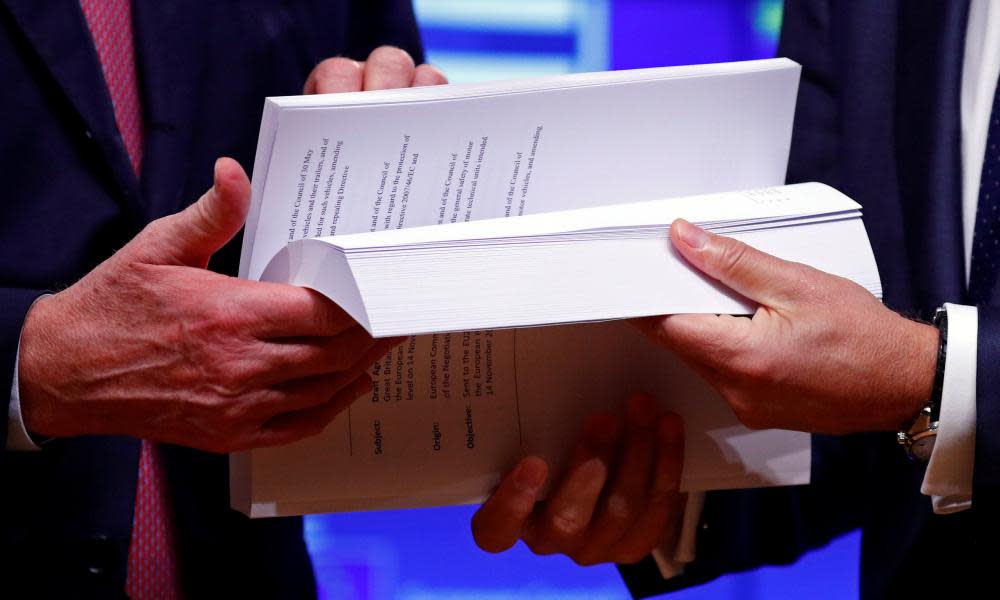Every time a word disappears, we lose a little of our spirit and wit

News stories about language and the way we use it are rarely edifying, and usually intensely vexatious: the custodians of grammar merrily set about their showing off; the more liberal-minded do their best to convince us that the likes of “cakeism” and “gammon” – two of the words of 2018, according to the Oxford Dictionaries – are signs of vibrancy and growth.
The fogeyish wistfulness and the determined digging-in involved in these spats are by now so reliably tedious, there’d be more pleasure and interest in listening to John Humphrys interview himself.
But when I read last week of Edward Allhusen, a writer who has gathered together in a book called Betrumped (v to cheat or deceive) some 600 English words he fears are shortly to become extinct, something about it spoke to me – and not only because “lickspittle” is a term I use quite often. (Alas, there are just so many creeps and suck-ups out there, and lickspittle is not only, being plosive, a very satisfying word to shout when someone’s obsequiousness really gets your goat; it also – think about it – conjures a thoroughly effective picture of whichever worm you happen to be after.)
Perhaps it was the politicians with their reliance on such emptinesses as “going forward” and “a deal that delivers”. Perhaps it was the highly intelligent people I heard last week fall back on the dreaded “journey” to describe something that was not even close to being one (they were talking about having, as judges of a literary prize, read a few books). Either way, I found myself longing to hear such words as pettifogging (the placing of undue importance on petty details) and crapulent (relating to drunkenness). In the matter of vocabulary, I experienced a sudden and powerful yearning for the novel and the lively, the particular and the pungent.
It seems to me that the current culture wars, which push everyone into this or that extreme position on every possible subject, and social media, with its dependence on a certain kind of shorthand, are between them pushing us into a race to the bottom when it comes to our common language. Yes, we’ve got big dick energy (look it up; I really can’t be bothered to get into it now), and gaslighting has made a surprise comeback to the point where people use it, entirely incorrectly, in conjunction with every possible form of bad behaviour. (Gaslighting involves manipulating someone psychologically to the point where they doubt their own sanity, not failing to turn up to the pub for a date with them.)
But we’re losing more than we’re gaining. All around us is an enervating linguistic blandness. It comprises an awful lot of repetition, a certain amount of misuse, and a drastic devaluation when it comes to words that should have huge and grave import. These politicians who talked of “catastrophe” long before any iceberg was in sight. Why didn’t they save it up? Now it’s really upon us, and everyone’s whistling, and drinking their coffee, and generally acting like the villagers in The Boy Who Cried Wolf.
People don’t listen to politicians not only because they’re inclined to dissemble. It’s because we can no longer hear them; their vague, insipid words, as pale and lifeless as primroses kept too long out of water, simply don’t catch on the ear. Even when we try our hardest to concentrate on their arguments – just occasionally, after too much coffee, I do this – we soon zone out, not only bored but lost: there we are, clutching our coats, in a cloakroom where there are no hooks.
Imprecision shades rapidly into meaninglessness, a contagion that too easily transmits itself to broadcast journalists (the very people who should be interrogating these anaemic banalities) and thence to the rest of us. When former public schoolboys used to go on about oratory, and all the things it can do, I used to take it as snobbish boasting: what they were saying was that, while I was lying on a beach on Mykonos, they were learning the language spoken by the lifeguard’s forebears. I don’t feel like that now. It isn’t possible easily to disagree with someone if you can’t remember what they said in the first place, which is why I’ll take Jo Johnson’s “vassalage” over “going forward” any day of the week.
When language is precise, chosen with care and used with relish, it rings like a bell. We all know this, and many of us have a great hunger for it – an appetite that only swells as the word pail grows ever dustier. Feeling this way isn’t a form of nostalgia; it may be a byproduct of our political discourse, but in every other way it has nothing at all to do with Brexit. The other day, a friend of mine used the term “yonderly” to denote a certain kind of absent-minded vagueness. This is a northern word and almost obsolete, but because I am northern, too, and it was one my grandparents used, it pierced my heart like an arrow. It has no good or true synonym. A doctor might say “confused”, but “yonderly” comes with a gentleness, a tickled fondness, that the more clinical term doesn’t reach; it makes you smile even as you worry.
Thinking about it later, in the midst of a quite different kind of confusion (take your pick of the various resignation statements), I wondered at its beautiful veracity. It is just as the philosopher said. Unless we have a word for something, we’re unable to conceive of it. Without the right words, we struggle properly to think – and when have we ever needed to do that more than now?
• Rachel Cooke is an Observer writer

 Yahoo News
Yahoo News 
